Yang deficiency refers to the condition where the body’s yang energy is weak, leading to reduced function or weakness, decreased metabolic activity, and low reactivity, which is a pathological phenomenon of insufficient yang heat. Due to insufficient yang energy, the body’s ability to resist cold decreases; therefore, the yang deficiency constitution is characterized by “cold” symptoms, mainly manifested as insufficient yang energy, fear of cold, cold hands and feet, etc. Other manifestations often include fatigue, pale lips, shortness of breath, poor digestion, loose stools, a pale and swollen tongue, decreased libido, a weak and deep pulse, preference for warm food, and intolerance to winter. Those who frequently consume cold or cool foods, cool teas, or cooling detoxifying herbs, as well as those who overexert themselves, are prone to yang deficiency symptoms.

Individuals with a yang deficiency constitution are particularly sensitive to cold, especially in the abdomen or back. Cold hands and feet do not necessarily indicate yang deficiency; they may also be related to qi and blood deficiency. It is advisable to avoid eating raw or cold foods such as watermelon, bitter melon, winter melon, water spinach, Chinese cabbage, bamboo shoots, kelp, mung beans, seaweed, pomelo, bananas, pears, and sugarcane.
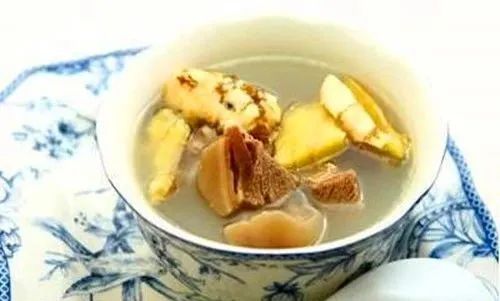
Those with yang deficiency should consume more warming and tonifying foods for kidney yang, such as lamb, beef, dog meat, venison, hairtail fish, sparrow meat, chicken, yellow eel, pig stomach, shrimp, grass carp, ginger, scallions, garlic, leeks, okra, mustard seeds, pepper, fennel, longan, lychee, lotus seeds, chestnuts, and walnuts.
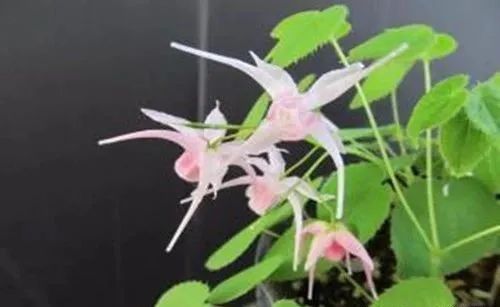
Chinese medicine can include warming and tonifying kidney and liver products, such as lu rong (deer antler velvet), yin yang huo (epimedium), hai gou shen (sea dog kidney), ge jie (gecko), dong chong xia cao (cordyceps), ba ji tian (morinda root), go ji zi (goji berries), xian mao (curculigo), rou cong rong (cistanche), yi zhi ren (black cardamom), tu si zi (dodder seed), bu guo zhi (psoralea fruit), du zhong (eucommia bark), zi he che (placenta), sha yuan zi (astragalus), and ren shen (ginseng).
In autumn and winter, it is important to dress warmly, avoid staying up late, and consume warm foods to nourish yang energy. In summer, avoid intense exercise to prevent excessive sweating, which can harm yang, and do not indulge in cold drinks.
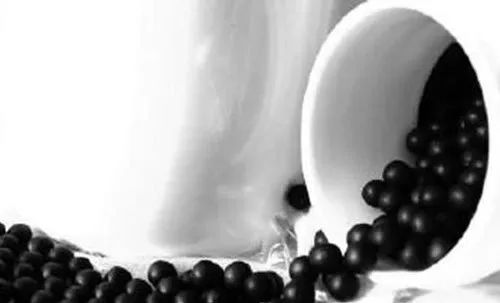
Individuals with a yang deficiency constitution can select some traditional Chinese medicines for conditioning. Below, we introduce ten traditional Chinese medicines for yang deficiency constitution for your reference. Note that the efficacy and indications of the following traditional Chinese medicines vary, and they should be used according to the diagnosis.
Kidney Yang Deficiency: This is mainly characterized by soreness and pain in the lower back and knees, fear of cold, fatigue, frequent urination, and edema. Traditional Chinese medicines for kidney yang deficiency include Jin Kui Shen Qi Wan (Golden Cabinet Kidney Qi Pill), Gui Fu Di Huang Wan (Cinnamon and Aconite Rehmannia Pill), Si Shen Wan (Four Gods Pill), You Gui Wan (Right Return Pill), Ji Sheng Shen Qi Wan (Rescue Kidney Qi Pill), and Suo Yang Guo Jing Wan (Lock Yang and Secure Essence Pill).
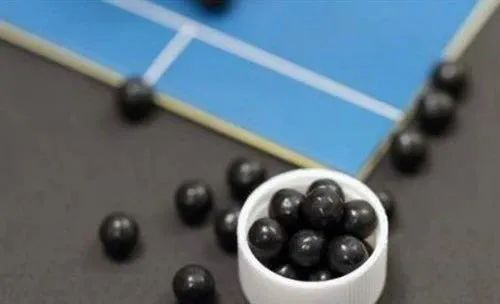
1. Jin Kui Shen Qi Wan: Composed of di huang (rehmannia), shan yao (Chinese yam), jiu yu rou (wolfberry fruit), fu ling (poria), mu dan pi (peony root), ze xie (alisma), gui zhi (cinnamon twig), fu zi (aconite, roasted), niu xi (achyranthes, head removed), and yan che qian zi (plantago seed). It warms and tonifies kidney yang, transforms qi, and promotes urination. It is used for kidney deficiency with edema, soreness in the lower back and knees, difficulty urinating, and fear of cold with cold limbs.
2. Gui Fu Di Huang Wan: Composed of rou gui (cinnamon), fu zi (aconite, prepared), shu di huang (rehmannia, cooked), jiu yu rou (wolfberry fruit), mu dan pi (peony root), shan yao (Chinese yam), fu ling (poria), and ze xie (alisma). It warms and tonifies kidney yang. It is used for insufficient kidney yang, soreness and cold in the lower back and knees, difficulty urinating or frequent urination, and phlegm-damp cough. Not suitable for those with yin deficiency and internal heat.
3. Ji Sheng Shen Qi Wan: Composed of shu di huang (rehmannia, cooked), shan zhu yu (cornelian cherry), mu dan pi (peony root), shan yao (Chinese yam), fu ling (poria), ze xie (alisma), rou gui (cinnamon), fu zi (aconite, prepared), niu xi (achyranthes), and che qian zi (plantago seed). It warms the kidney, transforms qi, and promotes urination to reduce edema. It is used for kidney yang deficiency with water retention, heavy sensation in the lower back and knees, difficulty urinating, and phlegm-damp cough.
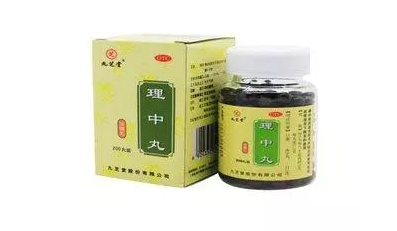
4. Si Shen Wan: Composed of rou dou kou (nutmeg, roasted), bu guo zhi (psoralea fruit, salt-fried), wu wei zi (schisandra fruit, vinegar-prepared), wuzhu yu (evodia fruit, prepared), and da zao (dates, pitted). It warms the kidney, disperses cold, and astringes the intestines to stop diarrhea. It is used for diarrhea due to kidney yang deficiency, with symptoms of abdominal rumbling, bloating, early morning diarrhea, poor digestion, and cold limbs.
5. You Gui Wan: Composed of shu di huang (rehmannia, cooked), fu zi (aconite, prepared), rou gui (cinnamon), shan yao (Chinese yam), shan zhu yu (cornelian cherry, wine-roasted), tu si zi (dodder seed), lu jiao jiao (deer antler glue), go ji zi (goji berries), dang gui (angelica), and du zhong (eucommia, salt-fried). It warms and tonifies kidney yang, replenishes essence, and stops leakage. It is used for kidney yang deficiency, decline of life gate fire, soreness and cold in the lower back and knees, fatigue, fear of cold, impotence, nocturnal emissions, loose stools, and frequent clear urination.
Spleen Yang Deficiency, also known as spleen deficiency cold syndrome, often presents with poor appetite, indigestion, belching with sour regurgitation, loose stools, abdominal bloating, and pain. The normal functioning of the spleen is essential for the growth and fullness of yang energy. Those with spleen yang deficiency can select fu zi li zhong wan (aconite middle-regulating pill) and gui fu li zhong wan (cinnamon and aconite middle-regulating pill).
6. Fu Zi Li Zhong Wan: Composed of fu zi (aconite, prepared), dang shen (codonopsis), bai zhu (white atractylodes, roasted), gan jiang (dried ginger), and gan cao (licorice). It warms the middle and strengthens the spleen. It is used for spleen and stomach deficiency cold, with cold pain in the abdomen, vomiting, diarrhea, and cold hands and feet.
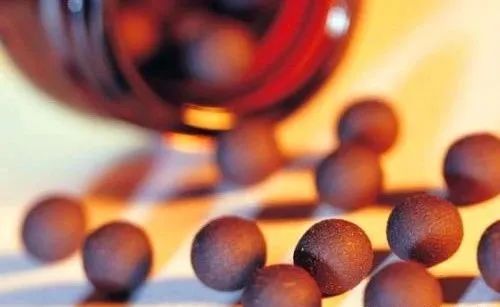
Stomach Yang Deficiency, also known as stomach deficiency cold syndrome, often presents with cold pain in the stomach area, preference for warmth and pressure, cold limbs, and vomiting. Traditional Chinese medicines for stomach yang deficiency include xiang sha yang wei wan (saussurea and sand ginger stomach-nourishing pill), xiao jian zhong granules, si ni tang (four reverse soup), an zhong pian (stomach calming tablets), wei chang san (stomach and intestines powder), and ba wei rou gui jiao nang (eight flavor cinnamon capsules).
7. Xiang Sha Yang Wei Wan: Composed of mu xiang (saussurea), sha ren (sand ginger), bai zhu (white atractylodes), chen pi (aged tangerine peel), fu ling (poria), ban xia (pinellia, prepared), cu xiang fu (vinegar-prepared cyperus), zhi shi (bitter orange, roasted), dou kou (cardamom, shelled), jiang hou po (thick magnolia bark), guang huo xiang (patchouli), gan cao (licorice), da zao (dates), and sheng jiang (fresh ginger). It warms the middle and harmonizes the stomach. It is used for stomach yang deficiency with damp obstruction and qi stagnation, presenting with dull stomach pain, discomfort, sour vomiting, loss of appetite, and fatigue.
8. Xiao Jian Zhong Pian: Composed of bai shao (white peony), da zao (dates), gui zhi (cinnamon twig), jiao gan cao (licorice, roasted), and sheng jiang (fresh ginger). It warms the middle, tonifies deficiency, and alleviates pain. It is used for spleen and stomach deficiency cold, with abdominal pain, preference for warmth and pressure, discomfort, sour regurgitation, palpitations, and alternating diarrhea and constipation in chronic colitis, as well as gastric and duodenal ulcers. Not suitable for those with spleen and stomach damp-heat.
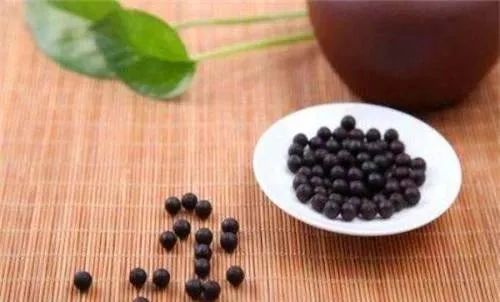
Heart Yang Deficiency: Caused by damage to yang energy, leading to internal cold and deficiency, clinically presenting with chest tightness, chest pain, palpitations, cold sweat, and cold limbs. Traditional Chinese medicines for heart yang deficiency include shen fu qiang xin wan (ginseng and aconite heart-strengthening pill) and qi li qiang xin jiao nang (qi li heart-strengthening capsules).
9. Shen Fu Qiang Xin Wan: Composed of ren shen (ginseng), fu zi (aconite, prepared), sang bai pi (mulberry root bark), zhi ling (polyporus), ting li zi (descurainia seed), and da huang (rhubarb). It tonifies qi, assists yang, strengthens the heart, and promotes urination. It is used for palpitations, shortness of breath, chest tightness, and edema due to chronic heart failure, belonging to heart and kidney yang deficiency.
Liver Yang Deficiency: Refers to insufficient liver yang energy leading to internal cold and stagnation of fire. Symptoms often include dizziness, pain in the sides, emotional depression, excessive worry, irregular menstruation, abdominal pain, and irritability. Traditional Chinese medicines for liver yang deficiency include shi xiang wan (ten fragrance pill) and hui xiang ju he wan (fennel and tangerine seed pill).
10. Shi Xiang Wan: Composed of chen xiang (agarwood), mu xiang (saussurea), ding xiang (clove), xiao hui xiang (fennel, roasted), xiang fu (cyperus, prepared), chen pi (aged tangerine peel), wu yao (lindera), ze xie (alisma, salt-water fried), li zhi he (lychee seed, roasted), and zhu ya zao (pig tooth soap). It promotes liver qi, disperses cold, and alleviates pain. It is used for hernias and abdominal pain caused by qi stagnation and cold accumulation. Note that it is not suitable for hernias caused by damp-heat invasion, blood stasis, or qi deficiency. Additionally, pig tooth soap is toxic and should not be taken in excess or for prolonged periods.
The content of this article is for the purpose of popularizing TCM knowledge and is for reference only. It does not constitute any prescription, recommendation, or guidance. Please use under the guidance of a physician if needed.
Note: Some text and image resources in this article are sourced from the internet. The reproduction of this article is intended to convey more information. If there are any errors in source attribution or infringement of your legal rights, please notify us immediately, and we will delete it promptly and apologize to you.
Previous Highlights:
8 Traditional Chinese Medicines for Osteoarthritis to Alleviate Joint Pain and Discomfort
15 Traditional Chinese Medicines to Nourish Essence and Improve Weak Constitution and Insufficient Energy
10 Traditional Chinese Medicines Commonly Used for Diabetes, Worth Collecting

